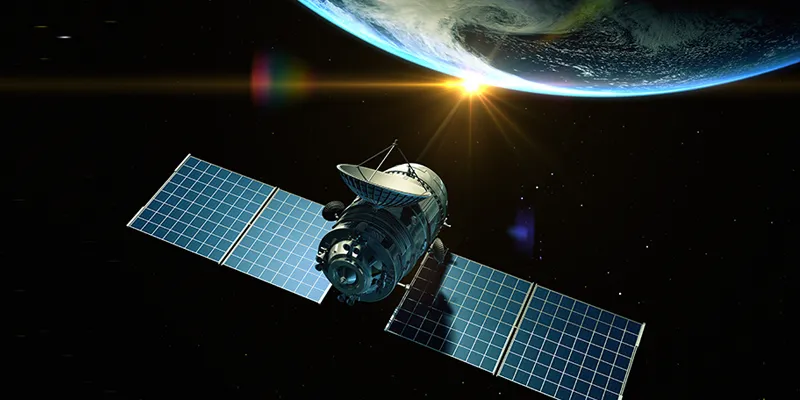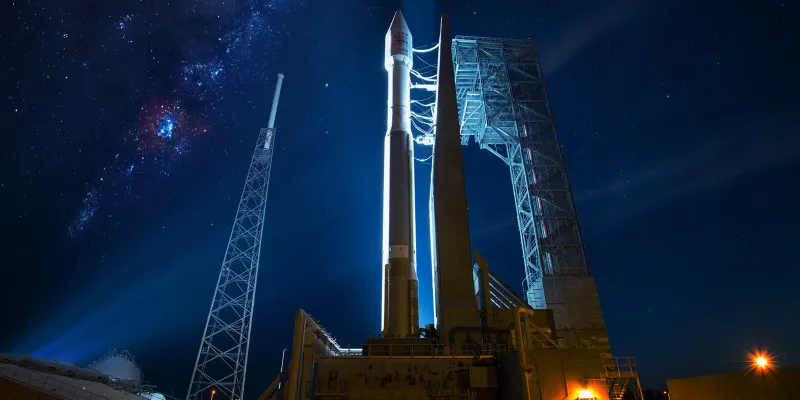Key requirements of the Indian spacetech sector to become the next space hub
Until last year, India’s spacetech efforts were headed by national space agency, ISRO. But in 2020, the sector saw a major transformation with new spacetech norms, which opened up the sector for private players.
India’s spacetech sector has come a long way. Headed by the Indian Space Research Organisation (ISRO), which was launched by Dr Vikram Sarabhai on August 15, 1969, ISRO has been at the forefront of driving the space sector till now.
With the demand for space-based applications and services growing in the country, the government decided to open the sector to private players in 2020. The unlocking of the spacetech sector has thus opened up a plethora of opportunities for the private sector, including startups, MSMEs, and academia, among others.
15664931221771568277803561.jpg?fm=png&auto=format)
Image Credit: ISRO
According to a report by PwC, the Indian space economy is valued at $7 billion, and forms two percent of the global space economy. The opening up of the spacetech sector may propel India to grow further and expand its share in the global space market.
However, in order to achieve the goal, the spacetech sector needs ecosystem support. YourStory brings to you a curated list of current needs and requirements in the Indian spacetech sector.
Funding support
Stakeholders unanimously agree that the Indian spacetech sector needs funding support from the ecosystem. The private investment sector might be wary of investing in spacetech because it is high risk and also needs high investment for innovation.
Ramesh Kumar V, Co-founder of , tells YourStory: “Access to funding has been a challenge for spacetech startups because it is a high risk business. For example, if a player loses its satellite, then it is gone. There is no tool to go and repair it in the space.”
He explains that investors might also be a little wary because the return on investment might not happen immediately. “Spacetech is rocket science. Space technology is complex and inventions take time. Maybe due to this, investors think a lot before making bets,” he adds.
Last year, during an industry event, Vishesh Rajaram, Managing Partner at Bengaluru-based VC firm Speciale Incept Advisors, said that investing in spacetech startups needs patience as one could not expect startups to complete innovations in a short amount of time.

Image Credit: Shutterstock
Government support
With the opening up of the spacetech sector to private players, the need of the hour is to come up with transparent policies to drive the public-private partnership.
Awais Ahmed, Co-founder and CEO of , says, the spacetech segment needs a policy in place and the government has been working on it since the last year.
According to ISRO, the draft space activity is in its final stage and will be soon submitted before the Union Cabinet for approval.
Apart from this, SATCOM and remote sensing policy are under revision while a new navigation policy is being formulated.
Awais explains that the government also needs to play an important role in helping players get access to capital through grants and sovereign funds, among others.
Last year, Sunil Mittal, Chairman, Bharti Enterprises, said, “It is required to have a light touch and unambiguous policies to facilitate private sectors participation in the space sector, and it should also protect the security and strategic interest of the country.”
Academic awareness
Opening up the spacetech sector is not only beneficial for private businesses but also for academia as they can also contribute to space missions. In order to further develop the spacetech sector, there is an urgent need for increasing awareness about the sector among students.
In February, the PSLV C-51 carried four student-made satellites where three were developed jointly by Jeppiaar Institute of Technology, Sriperumbudur; GH Raisoni College of Engineering, Nagpur; and Sri Shakti Institute of Engineering and Technology, Coimbatore; while the other one was made by Space Kidz India.

Representational Image [ Image Credit: Shutterstock]
Apart from this, edtech startups are also coming forward to build required skills in students. In March, edtech startup joined hands with satellite company EnduroSat to offer applied science opportunities for students.
As a part of this partnership, they will train and enable WhiteHat Jr students to send commands and also access data from an operational satellite.
In order to encourage students to take interest in this field, Amity University has also launched an Earth and space exploration training programme called Mars Amity Research Station.
Increased awareness among students and academic participation has the potential to further strengthen the public-private partnership in the spacetech sector.
Partnerships
Collaboration and partnership between ISRO, private players, and international players are one of the main reasons behind the opening up of the space sector.
Last year, during the announcement of the spacetech reforms, the government explained that private players and ISRO need to be co-travellers for space exploration.
As part of the new reforms, private players will be allowed to carry out end-to-end activities such as providing space-based services, designing satellites, and launch vehicles using a suitable enabling mechanism, thereby enabling ISRO to focus on advanced researches.
Recently, for India’s maiden mission, Gaganyaan, ISRO collaborated with Russia’s ROSCOMOS and France’s CNES.
India is also seeing spacetech startups such as Pixxel, Cosmos, and academic institutions such as Visvesvaraya National Institute of Technology, Nagpur; Maulana Azad National Institute of Technology, Bhopal; and National Institute of Technology, Rourkela; among others, enter into partnership with ISRO for collaborative space efforts.
Way forward
In 2020, several space missions got delayed due to the COVID-19 breakout.
However, Yashash Karanam, Co-founder of Bellatrix Aerospace, believes the Indian spacetech sector might see at least five unicorns in the next five years.
“Till date, hundreds of small satellites have being launched from India every year, but going forward, after the opening up of the spacetech sector, thousands of satellites may be launched every year,” he says.
The government, ISRO, and private players have indeed come together to further develop India’s space efforts. With the availability of adequate resources such as funding, policy support, and an increasing number of space businesses, India has the potential to place itself as one of the leaders in the global space market.
Edited by Megha Reddy










